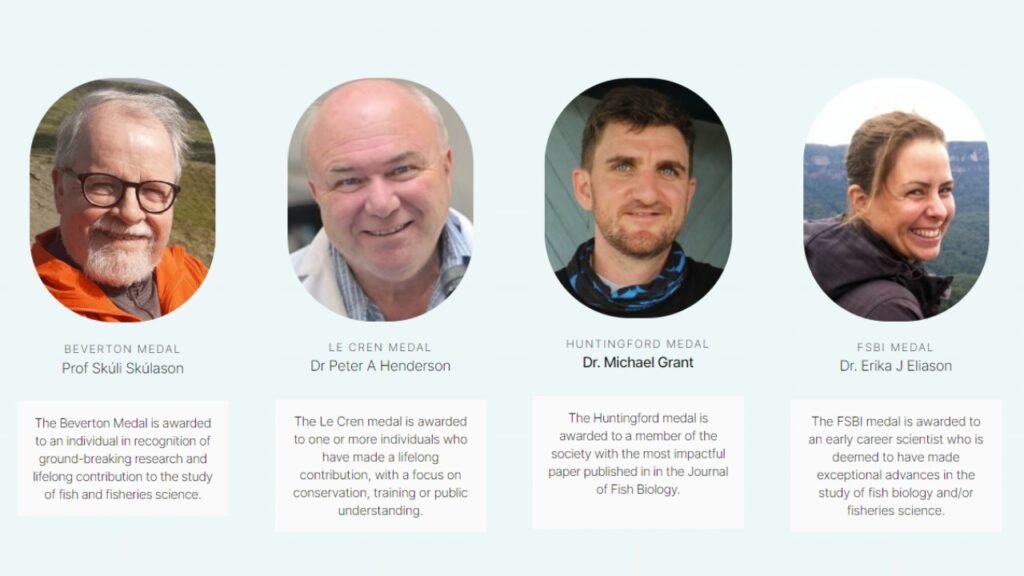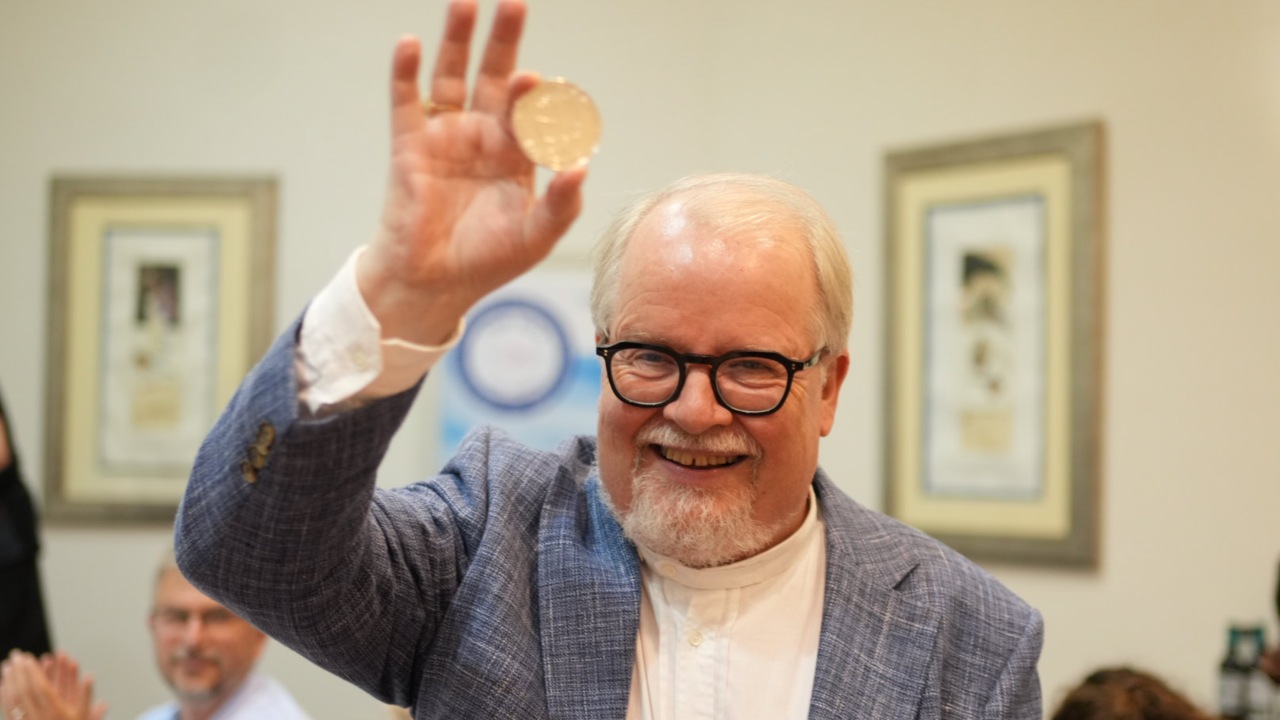English below
Skúli Skúlason prófessor hlýtur verðlaun Breska fiskifræðifélagsins
Breska fiskifræðifélagið (Fisheries Society of the British Isles) er alþjóðlegt félag sem styður við fræðastörf er tengjast fiskum, fiskalíffræði og nýtingu fiska. Félagið gefur út tímaritið Journal of Fish Biology og veitir styrki til rannsókna. Til þess að vekja athygli á fiskrannsóknum og til að heiðra framúrskarandi vísindamenn veitir félagið heiðursverðlaun árlega.
Í ár hlýst Skúla Skúlasyni prófessor við Háskólann á Hólum og Náttúruminjasafn Íslands sá heiður að vera sæmdur Beverton orðunni (Beverton medal). Hún er veitt einstaklingi fyrir framúrskarandi rannsóknir og langan feril er snýr að fiskum og nýtingu þeirra. Verðlaunin verða afhent á ráðstefnu Breska fiskifræðifélagsins í Bilbao í júlí og mun Skúli þar flytja heiðursfyrirlestur.
Rannsóknir Skúla hafa snúist um að skilja uppruna og eðli fjölbreytileika innan stofna ferskvatnsfiska. Hér á landi, eins og á öðrum norðlægum slóðum, eru fáar tegundir fiska í ferskvatni, en þeim mun meiri fjölbreytni innan tegundanna. Þannig hafa tegundirnar þróast til þess að nýta sér ólík búsvæði ferskvatnsins og endurtekið hafa aðskilin afbrigði og jafnvel nýjar tegundir myndast. Í rannsóknum sínum hefur Skúli, ásamt stórum hóp af samstarfsfólki og nemendum, reynt að skilja hvað það er í umhverfinu annars vegar og í fiskinum sjálfum hins vegar sem leitt getur til þessar þróunar. Auk þess hefur Skúli unnið að því að móta vísindakenningar sem geta lýst þróunarfræðilegum ferlum í síkvikri náttúru og þannig hefur hann haft mótandi áhrif á rannsóknir fjölmargra rannsóknahópa, innan og utan Íslands. Einnig hefur Skúli unnið að því að auka þekkingu almennings og þeirra sem taka ákvarðanir varðandi fjölbreytileika fiska, og líffræðilega fjölbreytni almennt, og stuðla þannig að betri verndun og upplýstri stýringu nýtingar.

Skúli Skúlason, Professor in the Department of Aquaculture and Fish biology, Hólar University, and the Icelandic Museum of Natural History, Iceland has been awarded The Beverton Medal by the FSBI (An International Society For Fish Biology). The Beverton Medal is awarded to an individual in recognition of ground-breaking research and lifelong contribution to the study of fish and fisheries science.
About Skúli and his research
For more than three decades Skúli Skúlason has devoted his research activity to asking some of the most fundamental questions in biology. How does diversity arise? What are the mechanisms that drive the very earliest stages of divergence? Under what circumstances do they occur? How fast can this happen and what are the consequences of rapid divergence? These questions he has addressed using fish models. His empirical work takes a field comparative approach using naturally rapidly diverging fish populations to understand the evolutionary patterns found in nature, most notably using Arctic charr and the three-spined stickleback from his native Iceland. He has combined this approach with elegantly crafted laboratory based experimental studies to provide insights into mechanisms that cannot easily be tested in the field. This combination of study designs results in powerful and compelling insights into patterns of divergence in very closely related intra-specific groups living in sympatry but which displayed highly divergent ecologies.
His drive to understand these patterns more deeply drove him to develop a series of theoretical models to explain the processes that enabled these patterns to arise. That evolutionary divergence can occur in sympatry, is now reasonably broadly accepted, this was not the case in the early 1990’s. Skúli’s theoretical framework, and empirical testing of that framework, contributed considerably to the general shift in comprehension. Thus, his contribution to this field has been to demonstrate how the plastic expression of phenotypes can lead to differential selection pressures, assortative mating and ultimately to divergence of a single population into to two or more.
Outside his research endeavours Skúli developed an internationally respected research group at Hólar University. He devoted a decade of his career to developing Master’s and PhD programmes there as well fostering a bachelor’s degree in fish biology. He has mentored a number of early career researchers who have in turn gone on to make important contributions in the field.
